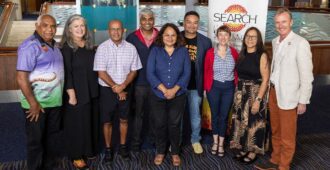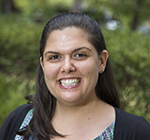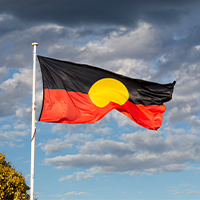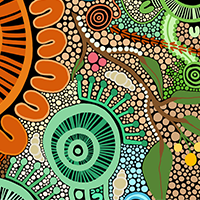Hundreds of urban Aboriginal children have benefited from an innovative partnership program established to tackle speech and hearing difficulties, in a model that could be part of a broader solution for long-term health.
Established in 2013, the Hearing EAr health and Language Services (HEALS) program is a partnership between Aboriginal community controlled health services, researchers and hospitals in NSW. Funded by NSW Health, it has delivered over 7000 speech and language services and ear operations to almost 800 urban Aboriginal children. These services have been delivered by the Sydney Childrens’ Hospitals Network.
A new research paper published today in the Australian and New Zealand Journal of Public Health shows it is a model that could be scaled up to benefit even more Aboriginal kids and families.
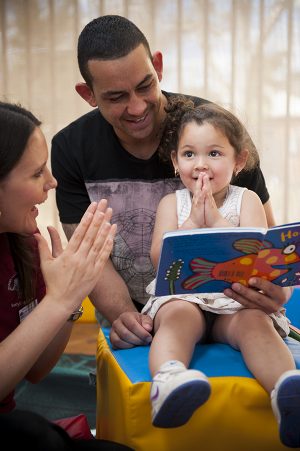
CEO of Campbelltown’s Tharawal Aboriginal Corporation Mr Darryl Wright said delivering ENT and speech-language services to at-risk Aboriginal children was life-changing.
“Before HEALS, the waiting list for surgery or speech and language therapy stretched into years,” said Mr Wright, whose Aboriginal community controlled health service participated in the HEALS program.
“When kids can’t hear in school and can’t properly participate in society it creates all kinds of problems. Their language skills don’t develop as quickly, they don’t sleep well, they have to take more time off, they can misbehave and their education can fall behind,” Mr Wright said.
“I’m really pleased that we are no longer just talking about the problems; instead we are helping to change the record for hundreds of kids and their families thanks to the HEALS program. This offers a model to help close the gap that has been shown to work – it’s a good news story for improving urban Aboriginal child health.”
HEALS is an outcome of the largest ongoing study of urban Aboriginal children ever conducted, the Study of Environment on Aboriginal Resilience and Child health (SEARCH). SEARCH, which involves 1600 urban Aboriginal children and their families, provided the first robust data that over 40% of children under 8 had significant speech and language impairments and/or ear health problems. The study was able to identify children attending the participating community controlled health services who were in most need of hearing and speech services.
SEARCH directly addresses the huge information gap about the health of urban Aboriginal families, which exists even though more than three quarters of Aboriginal people in NSW live in urban areas.
Dr Hasantha Gunasekera, a paediatrician from The Children’s Hospital at Westmead, co-ordinates HEALS delivery of surgery and speech and language services.
“Indigenous children experience middle ear disease earlier, more often and with more complications than non-Indigenous children. Left untreated it can lead to hearing loss, speech and language delays and hamper the kids’ ability to learn,” he said.
“The partnership model in this program is what makes the HEALS model work so effectively. Working together, and with funding from the NSW Ministry of Health, we have almost eliminated the waiting lists at the centres where we are working.”
SEARCH Study Director Dr Sumi Mutthaya who is based at the Sax Institute – one of SEARCH’s founding partners – said the success of the HEALS program showed the importance of developing long-term research partnerships like SEARCH, to improve Aboriginal health and wellbeing.
“SEARCH aims to do much more than better understand the causes of ill-health and disease among urban Aboriginal children – it’s designed so that the information is actually put to use to drive real improvements in services and health outcomes for Aboriginal people. This is exactly what is happening with the HEALS program.”
Find out more
- Contact the Sax communications team
- Download a PDF copy of the media release Innovative partnership tackles hearing and speech barriers for urban Aboriginal kids
- Read the HEALS paper abstract in the Australian and New Zealand Journal of Public Health
About SEARCH
The Study of Environment on Aboriginal Resilience and Child Health (SEARCH) is creating a long-term platform for closing the gap. The largest ongoing study of urban Aboriginal children ever conducted, SEARCH aims to do two equally important things: better understand the causes of health and disease among urban Aboriginal children and their families; and use this information to drive real improvements in services and health outcomes for Aboriginal people. It is an active partnership between Aboriginal community controlled health services and researchers, where the health services set the research priorities and guide how data is collected, interpreted and used.
The SEARCH partners are: The Aboriginal Health & Medical Research Council, the Sax Institute, leading researchers across Australian universities and four Aboriginal community controlled health services: Tharawal Aboriginal Corporation (Campbelltown), Awabakal Ltd (Newcastle), Riverina Medical and Dental Aboriginal Corporation (Wagga Wagga) and Aboriginal Medical Service Western Sydney (Mt Druitt).

